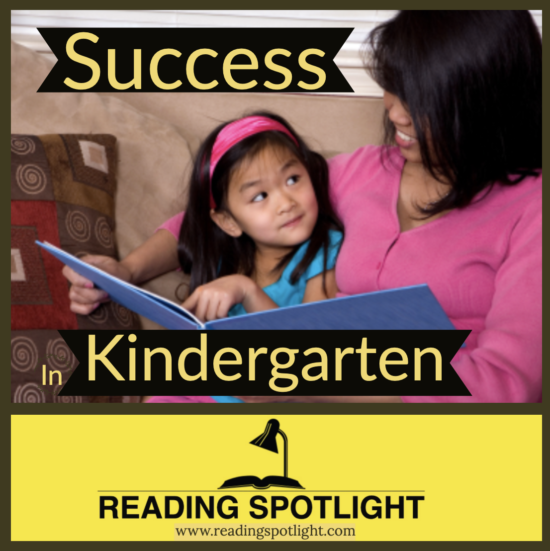Parents can prepare their children for success in kindergarten in many ways.
- Ensure that your child gets adequate rest, exercise and nutrition.
- Visit libraries, museums, parks and other educational resources in your community. Take our FREE (Parent Self-Evaluation Test)
- Auditory skills are very important for kindergarten. Develop them daily.
- Be sure your child can follow one and two step directions.
- In the car or on a bus ride, play games which encourage auditory memory– 20 Questions, for example, or try “I’m going on a picnic, and I’m taking …” with each person adding one more item to the memory list.
- Nursery rhymes, poems and songs are important. Brain research indicates the importance of patterns. Children who are familiar with rhymes make faster progress with word family approaches to reading. See our blog post: The Importance of Nursery Rhymes.
- Don’t use “baby talk” with your children. Encourage clear (not necessarily perfect) pronunciation of words in sentences.
- Read/tell stories to your child, and ask who? what? when? where? why? how?questions. Ask for a short retelling of the story. Encourage sequential retelling. Help him or her to tell only the important points. These skills are the foundation of reading comprehension. (Check out our free Sequencing Activity for Where the Wild Things Are).
- When reading a story, move your finger under the words in a left to right tracking motion. This will help your child automatically know which way to move his/her eyes across the page when starting to read.
- Help your child understand the concepts of “same” and “different.” Play bedtime or dinnertime games which encourage this.
- Familiarize your child with lower case letters of the alphabet. Many children come to school knowing upper case letters only and then are confused when learning to read involves mostly lower case letters. Play card games in which you match upper with lower case letters. Name the letters and practice the consonant sounds as you play. (Try our Learn to Read Bingo: Beginning & Ending Consonant Sounds).
- Letter-sound correspondence is often the focus of kindergarten today. When practicing the letter sounds, don’t add “uh” to each sound. Cut it off at the sound only = d.d.d. not duh, duh, duh. Adding the “uh” to letter sounds makes it so much more difficult for children to blend letter sounds into words later.
- Pay attention to the papers your child brings home from school. Be sure (s)he has learned the skill, letter, or concept the teacher taught that day. Go over each part with him or her.
- Remember that not all children are ready to learn to read at this age. Have patience.
Be sure to check out Reading Spotlight’s our FREE assessment: Parent Guide To Kindergarten Readiness
And for more information about kindergarten research, check out this Reading Spotlight blog:
Should You Redshirt Your Kindergartener?
© Reading Spotlight 2020


